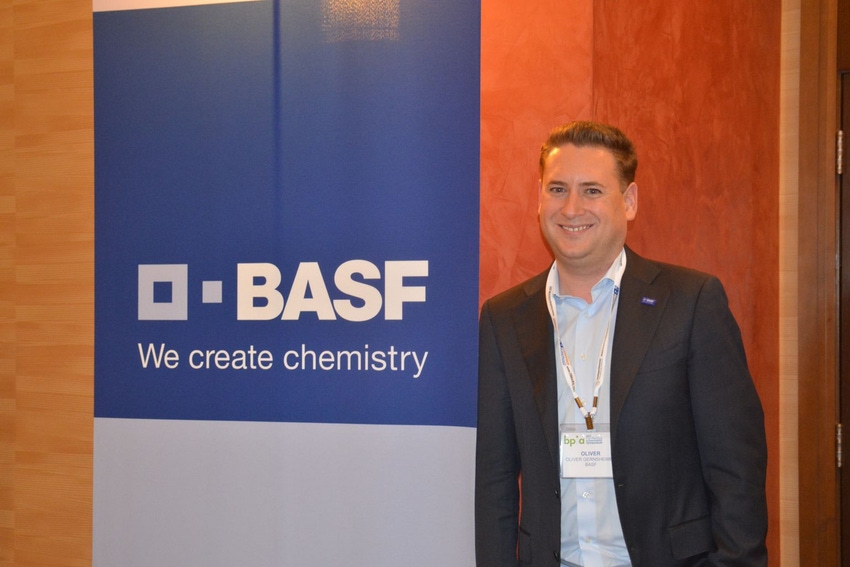
BASF is committed to biologicals as another tool for growers to battle pests and disease. The introduction of Serifel, the first proprietary biological fungicide offered by the company, is an important step into the market.
Oliver Gernsheimer, responsible for BASF’s Functional Crop Care, U.S. Crop Protection business, said there is a growing interest in biologicals, particularly among specialty crop growers. “BASF is excited about new technologies in all areas that add value to our portfolio. Wherever we see a promising product and customers who are excited about it, we invest to develop these technologies further,” he said.
“Strong grower interest and the realization that no one has focused on exactly how biologicals work are key drivers for BASF’s commitment to increase investment, science and research behind biologicals,” Gernsheimer said, noting that the company will introduce additional biological crop protection products in the near future.
Serifel, which is now labeled for use as a foliar fungicide in the United States, is based on viable spores of the beneficial bacterium Bacillus amyloiquefaciens strain MBI 600. It is targeted to specialty crops such as lettuce, spinach, grapes, wine grapes, strawberries, onions, carrots and tomatoes. It is currently labeled for foliar users, but BASF plans to add soil users to the label. Gernsheimer said the company hopes to have a label for soil use in the U.S. by next year.
Gernsheimer emphasizes that Serifel is a preventive fungicide designed to be used in a program with conventional fungicides or in an organic program. “Serifel is not designed as a stand-alone product,” he explained.
The product is effective on diseases such as powdery mildew because of its unique formulation. “Serifel is pure which allows the bacterium to work as it would in nature, making it more efficacious without interference,” said Gernsheimer. “BASF is also the only company to provide a true resistance-management program by killing resistant diseases to some conventional chemistries and not just a rotational resistance program.”
“Serifel works best when applied early, before moderate disease infection. Once applied, the spores multiply very rapidly, covering anywhere on the leaf that a disease may try to inhabit. If the conditions are right for disease, the conditions are right for Serifel,” Gernsheimer said. “Additionally, a special feature of Serifel is rainfastness. Of the many metabolites produced by Serifel, one in particular, surfactin, is very sticky, allowing it to adhere to the leaf even during rain or irrigation. No longer will a grower have to decide about using a biological because of impending rain or a strict irrigation schedule.”
Gernsheimer said a key aim of BASF is to increase the credibility of biologicals as part of a pest management program and to understand biologicals with as much specification as the company’s conventional chemistry.
“We need to increase the confidence level of biologicals. We know when and how to apply Serifel because of novel research that looks at a multitude of parameters that may be faced in natural field scenarios. Parameters, that until now, have not been communicated to the grower,” he said. “Serifel works differently crop by crop. It’s not a one-size-fits-all solution. Every crop is a little different and every situation needs a different treatment. Helping growers to maximize the power of Serifel will give confidence in biologicals and prove that BASF is a trusted leader in this segment.”
Gernsheimer said the company is committed to working with customers to give them the best possible experience using new biological products such as Serifel.
About the Author(s)
You May Also Like






